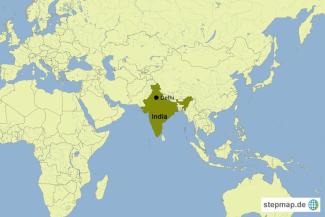Poverty alleviation
Dana, zakat and charity

India is moving up the ranks of countries measured in the CAF World Giving Index. Its ranking has improved to 81 from 91. Given the size of the Indian population – more than 1.3 billion – Indian givers easily outnumber those of other countries in sheer numbers. The CAF states that some 340 million Indians participated in helping a stranger in 2016 (down from 401 million in 2015), 265 million gave money (up from 203 million in 2015) and 256 million volunteered (up from 200 million in 2015).
Indian religions such as Hinduism and Sikhism set great store by “dana”. It resembles the Christian idea of charity, and the related Muslim principle is called “zakat”. Based on national survey data, the Pratichi Institute, which is run by Nobel laureate Amartya Sen, reckons that donations by Hindus amount to almost € 2 billion annually. The respective figures are € 220 million by Sikhs, € 55 million by Christians and € 340 million by Muslims.
In view of the dramatic social disparities, such charity does not suffice. Development efforts must be coordinated and designed properly in order to drive sustainable change (see main article). The sad status is clearly spelt out in India’s rank on the human development index: 130. Its rank on the SDG Index is 110. (arg)













